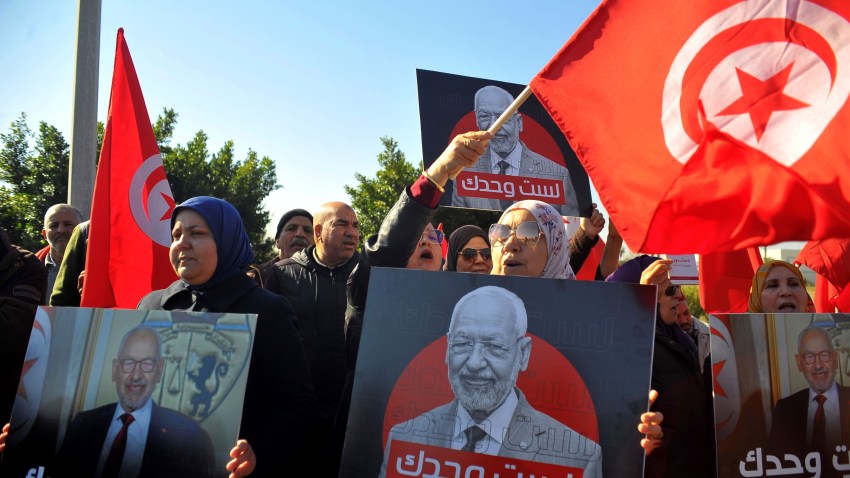Rached Ghannouchi—the co-founder and leader of Tunisia’s main opposition party, Ennahda—was arrested last week and remains in detention, and the party’s offices across Tunisia were closed by authorities. The moves are the latest in an ongoing crackdown against government critics, including the jailing of more than a dozen public figures deemed critical of President Kais Saied.
Ghannouchi, who is among the most prominent of those critics, was serving as speaker of parliament when Saied dissolved the body and dismissed the prime minister in 2021, as part of a drive to concentrate power in his own hands. Ghannouchi’s arrest and Saied’s continued clampdown on political freedoms have major implications for Tunisia’s domestic affairs as well as its foreign relations.
The timing of the arrest, which took place on the holiest night of the recently concluded month of Ramadan, was not lost on Ghannouchi’s family, given his leadership role in a progressive Islamist party; his daughter, Yusra, noted it in a Twitter post. Saied shot down that insinuation and defended the arrest as a necessary response to an alleged plot against national security. Days before, a video circulated online in which Ghannouchi said that excluding Ennahda and Tunisia’s other parties from the country’s political arena could pave the way for civil war. The remarks could be interpreted as a realistic description of the considerable support Ennahda commands as one of Tunisia’s largest political parties. Tunisian authorities took a bleaker view and interpreted Ghannouchi’s statement as an incitement to civil war.

